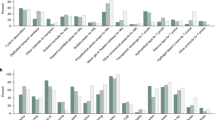Abstract
Objective
We aimed to assess the parent experience of therapeutic hypothermia (TH), specifically focusing on unmet expectations.
Study Design
Open-ended questions were used in a focus group setting. We employed an inductive approach to develop thematic content from the transcribed recordings.
Results
30 parents of infants treated with TH participated. Within the principal theme of managing expectations, four sub-themes emerged. These included parental concerns about morphine use; specifically the association of morphine with end-of-life care and addiction. Parents perceived their role as key in the decision to implement TH and were emotionally burdened by this during and after TH. Parents recall intense fear for the infant’s immediate survival and were not sufficiently reassured regarding survival. Parents also experience ongoing uncertainties about the long-term prognosis after TH.
Conclusion
The identification of these four areas in which parents have unmet expectations is important in order to improve the delivery of care.
This is a preview of subscription content, access via your institution
Access options
Subscribe to this journal
Receive 12 print issues and online access
$259.00 per year
only $21.58 per issue
Buy this article
- Purchase on Springer Link
- Instant access to full article PDF
Prices may be subject to local taxes which are calculated during checkout
Similar content being viewed by others
References
Jacobs SE, Berg M, Hunt R, Tarnow-Mordi WO, Inder TE, Davis PG. Cooling for newborns with hypoxic ischaemic encephalopathy. Cochrane Database Syst Rev. 2013;1:CD003311.
Tagin MA, Woolcott CG, Vincer MJ, Whyte RK, Stinson DA. Hypothermia for neonatal hypoxic ischemic encephalopathy: an updated systematic review and meta-analysis. Arch Pediatr Adolesc Med. 2012;166:558–66.
Heringhaus A, Blom MD, Wigert H. Becoming a parent to a child with birth asphyxia-From a traumatic delivery to living with the experience at home. Int J Qual Stud Health Well-Being. 2013;8:1–13.
Nassef SK, Blennow M, Jirwe M. Experiences of parents whose newborns undergo hypothermia treatment following perinatal asphyxia. J Obstet Gynecol Neonatal Nurs. 2013;42:38–47.
Lemmon ME, Donohue PK, Parkinson C, Northington FJ, Boss RD Communication Challenges in Neonatal Encephalopathy. Pediatrics. 2016;138, pii: e20161234.
Lemmon ME, Donohue PK, Parkinson C, Northington FJ, Boss RD. Parent Experience of Neonatal Encephalopathy. J Child Neurol. 2017;32:286–92.
Lateef F. Patient expectations and the paradigm shift of care in emergency medicine. J Emerg Trauma Shock. 2011;4:163–7.
Kuo SC, Lin KC, Hsu CH, Yang CC, Chang MY, Tsao CM, et al. Evaluation of the effects of a birth plan on Taiwanese women’s childbirth experiences, control and expectations fulfilment: a randomised controlled trial. Int J Nurs Stud. 2010;47:806–14.
Beaton J, Gupton A. Childbirth expectations: a qualitative analysis. Midwifery. 1990;6:133–9.
Guillaume S, Michelin N, Amrani E, Benier B, Durrmeyer X, Lescure S, et al. Parents’ expectations of staff in the early bonding process with their premature babies in the intensive care setting: a qualitative multicenter study with 60 parents. BMC Pediatr. 2013;13:18.
Sarnat HB, Sarnat MS. Neonatal encephalopathy following fetal distress. A clinical and electroencephalographic study. Arch Neurol. 1976;33:696–705.
R: A language and environment for statistical computing. R Foundation for Statistical Computing; 2016.
Thomas D. A General Inductive Approach for Analyzing Qualitative Evaluation Data. Am J Eval. 2006;27:237–46.
Craig A, James C, Bainter J, Lucas FL, Evans S, Glazer J. Survey of Neonatal Intensive Care Unit Nurse Attitudes Toward Therapeutic Hypothermia Treatment. Adv Neonatal Care. 2017;17:123–30.
Roka A, Melinda KT, Vasarhelyi B, Machay T, Azzopardi D, Szabo M. Elevated morphine concentrations in neonates treated with morphine and prolonged hypothermia for hypoxic ischemic encephalopathy. Pediatrics. 2008;121:e844–9.
Thyagarajan B, Baral V, Gunda R, Hart D, Leppard L, Vollmer B Parental perceptions of hypothermia treatment for neonatal hypoxic-ischaemic encephalopathy. J Matern Fetal Neonatal Med 2017:1-7. https://doi.org/10.1080/14767058.2017.1346074. [Epub ahead of print]
Pederson DR, Bento S, Chance GW, Evans B, Fox AM. Maternal emotional responses to preterm birth. Am J Orthopsychiatry. 1987;57:15–21.
Partridge JC, Martinez AM, Nishida H, Boo NY, Tan KW, Yeung CY, et al. International comparison of care for very low birth weight infants: parents’ perceptions of counseling and decision-making. Pediatrics. 2005;116:e263–71.
Harvey ME, Nongena P, Gonzalez-Cinca N, Edwards AD, Redshaw ME, e PRT. Parents’ experiences of information and communication in the neonatal unit about brain imaging and neurological prognosis: a qualitative study. Acta Paediatr. 2013;102:360–5.
Azzopardi D, Strohm B, Marlow N, Brocklehurst P, Deierl A, Eddama O, et al. Effects of hypothermia for perinatal asphyxia on childhood outcomes. N Engl J Med. 2014;371:140–9.
Shankaran S, Pappas A, McDonald SA, Vohr BR, Hintz SR, Yolton K, et al. Childhood outcomes after hypothermia for neonatal encephalopathy. N Engl J Med. 2012;366:2085–92.
Acknowledgements
We wish to express our appreciation to the parents and grandparents who participated in this study. We thank you for your time, your deep insight and for your assistance in improving the care we provide to families of infants treated with therapeutic hypothermia.
Funding:
Dr. Craig was supported by the National Center for Advancing Translational Sciences, National Institutes of Health, Grant Number KL2TR001063. Internal funding for the material costs associated with the project including gift cards, meals and transcription was provided through a mentored research grant through the Maine Medical Center Research Institute. The authors have no financial relationships relevant to this article to disclose
Author information
Authors and Affiliations
Corresponding author
Ethics declarations
Conflict of interest
The authors declare that they have no conflict of interest.
Electronic supplementary material
Rights and permissions
About this article
Cite this article
Craig, A.K., Gerwin, R., Bainter, J. et al. Exploring parent expectations of neonatal therapeutic hypothermia. J Perinatol 38, 857–864 (2018). https://doi.org/10.1038/s41372-018-0117-8
Received:
Accepted:
Published:
Issue Date:
DOI: https://doi.org/10.1038/s41372-018-0117-8
This article is cited by
-
Opioid exposure during therapeutic hypothermia and short-term outcomes in neonatal encephalopathy
Journal of Perinatology (2022)



